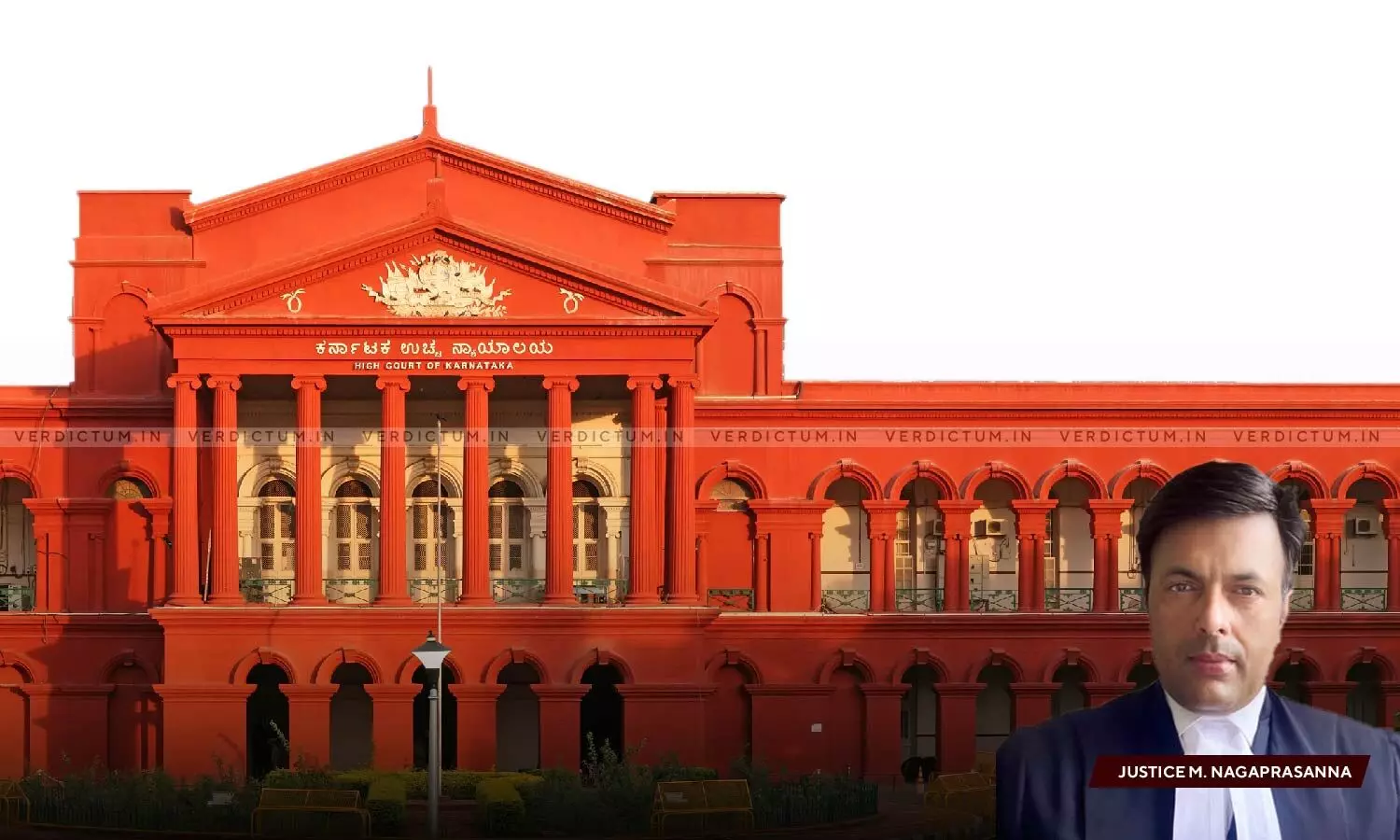
Process Of Tender Must Be Fair And Non-Arbitrary And If Not, It Would Become Amenable To Judicial Review: Karnataka HC
 |
|The Karnataka High Court observed that the process of tender must be fair and non-arbitrary which is the heartbeat of fair play and if it is not, it would become amenable to judicial review.
The court held the Expression of Interest or tender should be invited by strictly adhering to the Karnataka Transparency in Public Procurements Rules 2000 (Rules).
The Court allowed the Petition and directed the Managing Director and Expression of Interest Accepting Authority of the Department of Backward Classes Welfare to issue a fresh Expression of Interest following Rules 27.
The Court noted the non-negotiable nature of certain pre-conditions, particularly the requirement for experience, in ensuring the fair and transparent execution of public procurements.
The Bench of Justice M. Nagaprasanna observed, “it is again an admitted fact that Expression of Interest or tender was invited strictly in consonance with Rule 27 of the Rules and the standard tender documents”.
Advocate Rahul S. Reddy appeared for the Petitioner, Government Pleader Spoothy Hegde appeared for the State and Senior Advocate Ravivarma Kumar appeared for the First Respondent- Department of Backward Classes Welfare and Second Respondent- Managing Director and Expression of Interest Accepting Authority.
The petitioners challenged a communication and a tender notification related to the empanelment of drilling agencies for bore wells under the 'Ganga Kalyana' scheme. The petitioners, contractors in this field, contend that the eligibility criteria in the Expression of Interest/tender were modified, specifically removing the requirement of work experience. They argued that this change contradicted the standard tender documents of the State. The Petition was presented before the High Court on the grounds of the altered eligibility criteria.
In its examination, the Court observed that the uncontested details centred on the Managing Director and Expression of Interest Accepting Authority of the Backward Class Development Corporation under the Department. The Ganga Kalyana scheme, governed by the State Government, encompasses various activities under the Backward Classes Welfare Department, including the Expression of Interest for the empanelment of drilling agencies for bore wells. The Court scrutinized the eligibility criteria, particularly from the previous Expression of Interest for the years 2020-21, 2021-22, and 2022-23, to assess compliance with the legal framework.
The Court emphasized that key clauses (b) and (c) in the Expression of Interest outline the eligibility criteria. Clause (b) mandated a tenderer to achieve a minimum annual turnover in drilling bore wells for any two financial years from the last five years, with higher thresholds for Scheduled Castes and Scheduled Tribes. Clause (c) required satisfactory completion of drilling a minimum of 50 bore-wells in one year within the last five years, specifically with a Government Department. Certificates confirming this completion had to be appended. These criteria applied to an earlier Expression of Interest.
The Court observed a significant change in the latter Expression of Interest, specifically the omission of work experience as a criterion, evident when compared to the hitherto issued Expression of Interest. The government's 'standard tender document' mandates satisfactory completion of similar works based on cost, ranging from 50% for works up to `100 lakhs to 80% for works exceeding `100 lakhs. It also requires the demonstration of a certain annual financial turnover. However, a communication from the 1st respondent to the 2nd respondent before this Expression of Interest notified the removal of certain clauses in the upcoming notification.
The Court noted that the latter Expression of Interest deviated from established norms, omitting the requirement for work experience and financial turnover, contrary to Rule 27 and the Government Order of 14.10.2008. Rule 27 mandates pre-qualification conditions for tenderers, including considerations of experience, past performance, capabilities, and financial status. However, the latter Expression of Interest fails to adhere to these standards, representing a departure from the consistent practice of inviting tenders by Rule 27 and standard tender documents.
"Rule 27 (supra) mandates certain pre-qualification procedure. A tender inviting authority shall for reasons to be recorded in writing provide for pre-qualification of tenderers certain conditions. Clause (a) to (c) thereof provide for experience and past performance of execution of similar contract; capabilities of the tenderer with respect to personnel, equipment and construction or manufacturing facilities; financial status and capacity. Sub-rule (2) indicates that only the tenders of pre-qualified tenderers shall be considered for evaluation", the Court noted.
The Court dismissed the argument that changes in the procedure were made to avoid cartelization in previous tenders, emphasizing the importance of adhering to government-notified standard tender documents. The Court deemed the latter Expression of Interest unsustainable and urged the state to issue one in line with rules and government orders.
The Court noted that interference was warranted when the tender process was found to be arbitrary, citing the judgment in the case of Michigan Rubber (India) Limited v State Of Karnataka [(2012) 8 SCC 216]. The Court reiterated that "the process of tender must be fair and non-arbitrary which is the heartbeat of fair play. If it is not, it would become amenable to judicial review".
Additionally, the Court observed that "certain pre-conditions or qualifications for tender have to be laid down to ensure that the contractor has the capacity and resources to successfully execute the work and if it is not, they should be interfered with under Article 226 of the Constitution of India". In this case, the actions of the 2nd respondent are deemed contrary to established rules and government orders, especially the removal of a contractor's work experience, posing a risk to the project. Consequently, the Court recommends the entire process, starting from the issuance of the request for proposal, to be redone by the 2nd respondent.
Accordingly, the Court allowed the Petition and quashed the impugned communication and notifications.
Cause Title: Chinnappareddy v State Of Karnataka